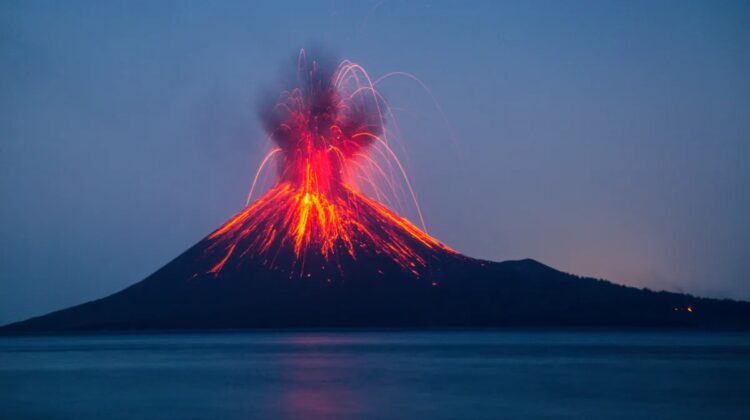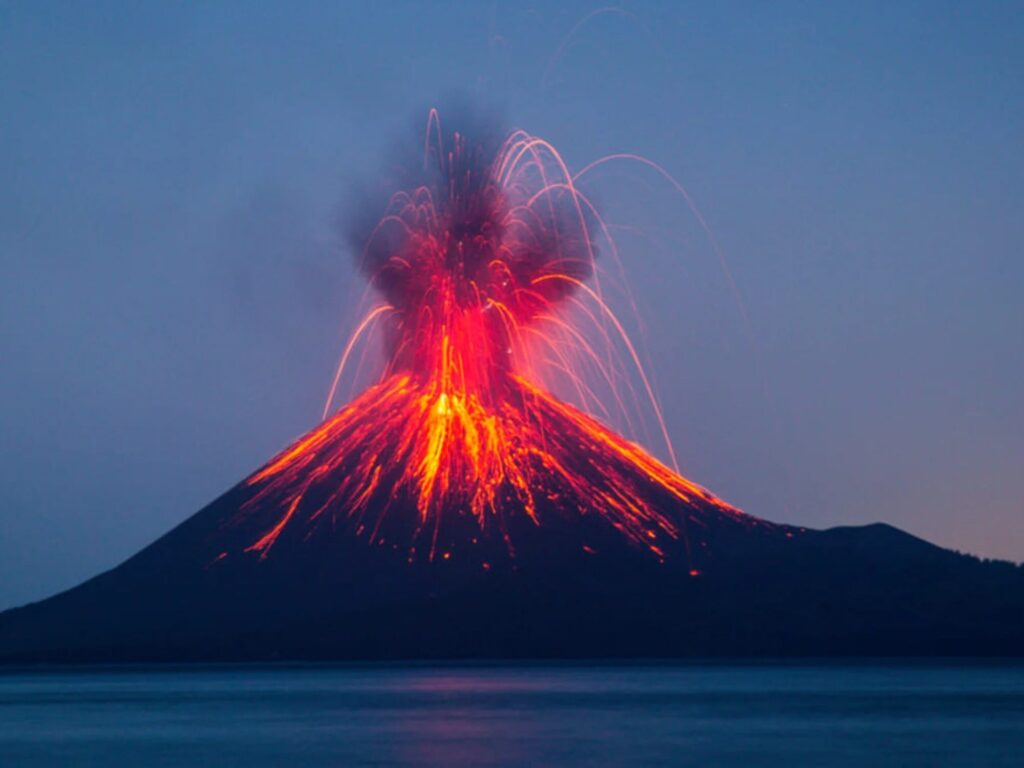
In 1883, a volcanic island in Indonesia known as Krakatoa erupted, unleashing a blast so loud that it’s considered to be the loudest sound ever recorded in history. The sound was so intense that it ruptured eardrums and inflicted severe damage on people and objects up to 40 miles away.
Krakatoa, which was located between Java and Sumatra, had been dormant for over 200 years before it began to show signs of activity in 1883. On August 27 of that year, the volcano erupted with a force equivalent to a 200-megatonne bomb, sending tsunamis as high as 46 meters (151 feet) that wreaked havoc on coastal communities as far away as South Africa.
According to the Natural History Museum, the sound produced by the eruption reached an ear-splitting 172 decibels at a gasworks 160 kilometers (100 miles) from Krakatoa. For reference, the human threshold for pain is 130 decibels, and each 10-decibel increase is perceived as the noise doubling. At 194 decibels, which is the loudest sound possible in air, the sound waves were so powerful that they changed from a perceivable sound to a pressurized burst of air that ruptured the eardrums of sailors on a ship that was within 64 kilometers (40 miles) of the island.

The shockwave from the eruption continued to travel across the planet, wrapping around the globe three times in each direction. It could still be heard like cannon fire at a distance of 4,800 kilometers (3,000 miles) from Krakatoa. The wave of pressure also collided with other shockwaves, causing additional pressure spikes.
While Krakatoa remains the record holder for the loudest sound ever recorded, the Tonga eruption in 2022 is believed to be the loudest sound since Krakatoa. Its sonic boom was heard 6,200 kilometers (3,850 miles) away in Alaska, and it produced waves of sound and tsunamis that traveled across the planet.
It’s difficult to fathom the sheer magnitude of the sound produced by Krakatoa. It’s a reminder of the immense power of nature and a testament to the importance of monitoring volcanic activity and preparing for potential disasters. Let’s hope Krakatoa remains the loudest sound ever recorded for many centuries to come.

Leave a Reply